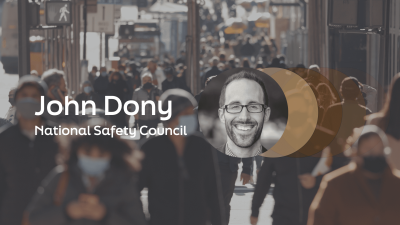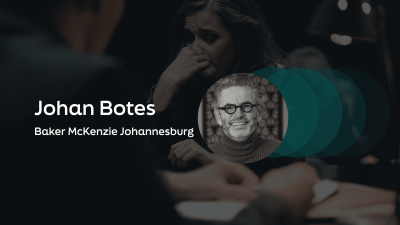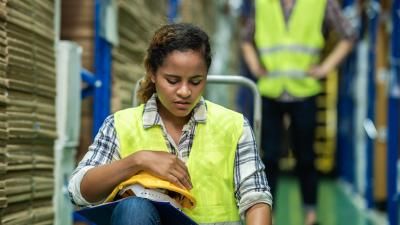At no time in recent memory has it been more obvious that environmental, health, safety and risk professionals are reliant on two things to be effective in their role:
- The availability of reliable and accurate data, and
- The ability to understand and influence people.
The COVID-19 pandemic has served as an object lesson on both issues. At first, EHS and risk leaders were in a mad scramble to gather data on the nature of the virus, transmission vectors, and case rates in various parts of the world. Now, we’ve turned to the long tail of response in which behavioural factors are the determinant of the speed at which we can make it to the other end of this crisis.
Months before COVID-19, the National Safety Council had the amazing opportunity to collaborate with the Lloyd’s Register Foundation on its World Risk Poll. Little did we know then where 2020 would take us, but in retrospect, the World Risk Poll has ultimately illuminated the same two core issues we’ve seen throughout our response these past several months.
First and foremost, the World Risk Poll opens up a new slate of data that we have often struggled to get access to when taking stock of injuries and deaths worldwide. While we often get decent, structured data reporting at the organizational and national levels, both of these sets of information go through many layers of “management” before reaching the public, and are of course reliant on accurate self-reporting to begin with. The World Risk Poll gives us the “third leg of the stool” we need – direct, individual level information on actual injuries and illnesses suffered. Critically, these numbers are much higher than what we see in the macro data sets. In most cases, it seems that many more workers than we think – in some countries nearly three-quarters of the workforce – indicate that they’ve been hurt on the job. This supports the long-held belief of many EHS and risk professionals that safety data remains under-reported.
Beyond that, the World Risk Poll points to the critical need – one that COVID-19 has brought to the forefront – that people need to feel safe to truly be safe, mentally and physically. The Poll found that across almost every region of the globe, people believed they were at greater risk for future injury or harm if they perceived their bosses do not care about safety and/or if they felt as though they couldn’t speak up about their safety. We’ve long known that the ability to safely report and communicate is a key pillar of risk mitigation, but the complex interlinkages of culture, influence, wellbeing, mental health, stress, fatigue, and safety are only now being studied as deeply as they need to be. As we engage in a global vaccination effort, we would do well to consider what the World Risk Poll has shown us – fostering a culture of safety takes far more than simply gathering data and creating policies.
As we go forward into 2021, NSC is excited to look at ways to continue to evaluate the Poll’s individual-level data and insights alongside the employer and national data we typically monitor. The challenge we face, as with any rich set of information, is how to translate it into actionable insights. As we look to national and local governments and employers to help lead toward recovery in the New Year, what should we be encouraging them to do, not just with respect to COVID-19 but to building a sustainably safe and healthy world? One thing we know for sure is that we must keep these kinds of partnerships and dialogues open – if there has been any silver lining to 2020, it may well be the transformational opportunities we’ve have to work with so many around the world on the problems that matter most.







